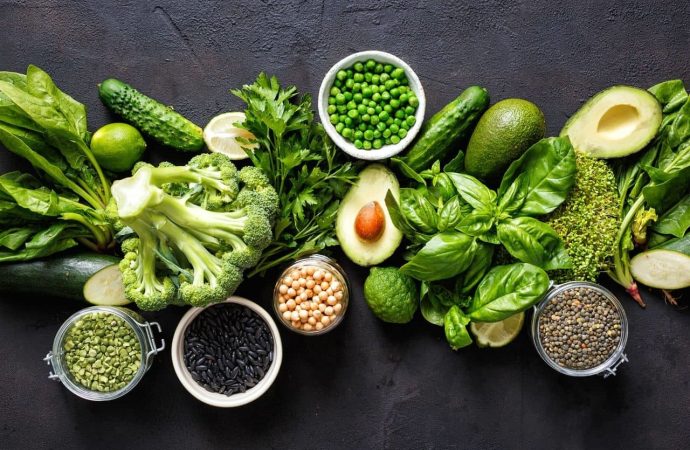Top Sustainable Products in 2024: Eco-Friendly Innovations As the world becomes increasingly aware of the environmental challenges we face, the demand for sustainable products has surged. In 2024, a wave of eco-friendly innovations is making it easier than ever to live a green lifestyle. From everyday essentials to cutting-edge technology, these sustainable products are designed
Top Sustainable Products in 2024: Eco-Friendly Innovations
As the world becomes increasingly aware of the environmental challenges we face, the demand for sustainable products has surged. In 2024, a wave of eco-friendly innovations is making it easier than ever to live a green lifestyle. From everyday essentials to cutting-edge technology, these sustainable products are designed to reduce our carbon footprint and promote a healthier planet. This article highlights some of the top sustainable products of 2024, showcasing how innovation and sustainability can go hand in hand.

Yandex.com
Solar-Powered Home Systems
Solar energy has been a cornerstone of sustainable living for years, but 2024 brings more advanced and accessible solar-powered home systems. These systems are not only more efficient but also more affordable, making them a viable option for a broader range of households. New advancements include solar panels that are easier to install and maintain, as well as integrated battery storage solutions that ensure a steady power supply even when the sun isn’t shining. By harnessing the power of the sun, these systems significantly reduce reliance on fossil fuels and lower electricity bills.
Eco-Friendly Packaging
The packaging industry has seen a significant shift towards sustainability, with companies adopting eco-friendly materials and designs. In 2024, biodegradable and compostable packaging options are more prevalent than ever. Made from materials like cornstarch, mushroom mycelium, and seaweed, these packaging solutions break down naturally without harming the environment. Additionally, innovative designs that minimize material usage and maximize recyclability are becoming standard, reducing the overall waste generated by consumer products.
Electric Vehicles (EVs)
Electric vehicles continue to gain traction as a sustainable alternative to traditional gasoline-powered cars. The latest models in 2024 boast longer ranges, faster charging times, and more affordable prices, making EVs more accessible to the average consumer. Advances in battery technology and the expansion of charging infrastructure have addressed many of the previous concerns about EVs, such as range anxiety and charging convenience. By reducing greenhouse gas emissions and reliance on fossil fuels, electric vehicles play a crucial role in the transition to a more sustainable transportation system.
Sustainable Fashion
The fashion industry is notorious for its environmental impact, but 2024 sees a growing trend towards sustainable fashion. Brands are increasingly adopting eco-friendly materials like organic cotton, recycled polyester, and bamboo, which have a lower environmental footprint compared to conventional fabrics. Additionally, there is a push towards ethical manufacturing practices, including fair labor conditions and reduced water usage. Consumers are also embracing the concept of circular fashion, where clothing is designed to be reused, recycled, or upcycled, extending the lifecycle of garments and reducing waste.
Plant-Based Foods
The shift towards plant-based diets is not just a trend but a significant movement towards sustainability. In 2024, the variety and quality of plant-based foods have expanded dramatically. From meat substitutes made from pea protein and soy to dairy-free milk alternatives like oat and almond milk, these products offer delicious and nutritious options that are kinder to the planet. Plant-based foods typically require fewer resources to produce and generate lower greenhouse gas emissions compared to animal-based products, making them a key component of a sustainable diet.
Water-Saving Technologies
With water scarcity becoming an increasingly pressing issue, water-saving technologies are more important than ever. In 2024, innovative products like smart irrigation systems, low-flow fixtures, and water-efficient appliances are helping households and businesses reduce water consumption. Smart irrigation systems use weather data and soil moisture sensors to optimize watering schedules, ensuring that plants receive the right amount of water without waste. Low-flow fixtures and water-efficient appliances, such as dishwashers and washing machines, are designed to perform effectively while using significantly less water.
Zero-Waste Personal Care Products
The personal care industry is embracing the zero-waste movement, with a growing number of products designed to minimize packaging and waste. In 2024, consumers can find a wide range of zero-waste personal care products, including shampoo bars, toothpaste tablets, and reusable makeup remover pads. These products often come in biodegradable or reusable packaging, reducing the amount of plastic waste generated. Additionally, many of these products are made with natural and organic ingredients, offering a healthier alternative to conventional personal care items.
Energy-Efficient Appliances
Energy efficiency is a key aspect of sustainable living, and 2024 brings a new generation of energy-efficient appliances. From refrigerators and washing machines to air conditioners and lighting, these appliances are designed to consume less energy while maintaining high performance. Energy-efficient appliances not only help reduce electricity bills but also lower greenhouse gas emissions, contributing to a more sustainable environment. Many of these products are also equipped with smart features that allow users to monitor and optimize their energy usage.
Sustainable Building Materials
The construction industry is undergoing a transformation with the adoption of sustainable building materials. In 2024, materials like cross-laminated timber (CLT), recycled steel, and sustainable concrete are becoming more common in construction projects. These materials offer a lower environmental impact compared to traditional building materials, such as concrete and steel. CLT, for example, is made from sustainably harvested wood and has a smaller carbon footprint than conventional construction methods. Sustainable building materials not only reduce the environmental impact of construction but also promote healthier living environments.
Reusable Household Items
Reusable household items are gaining popularity as consumers seek to reduce single-use plastic waste. In 2024, a wide range of reusable products is available, including silicone food storage bags, stainless steel straws, and beeswax wraps. These products are designed to be durable and long-lasting, reducing the need for disposable alternatives. By incorporating reusable items into daily routines, consumers can significantly reduce their plastic waste and contribute to a more sustainable lifestyle.
Conclusion
The year 2024 marks a significant step forward in the journey towards sustainability, with a plethora of innovative and eco-friendly products available to consumers. From solar-powered home systems and electric vehicles to sustainable fashion and zero-waste personal care products, these sustainable products are making it easier than ever to live a green lifestyle. By embracing these innovations, we can reduce our environmental impact and promote a healthier planet for future generations. As technology continues to advance and awareness grows, the future of sustainable living looks brighter than ever
















